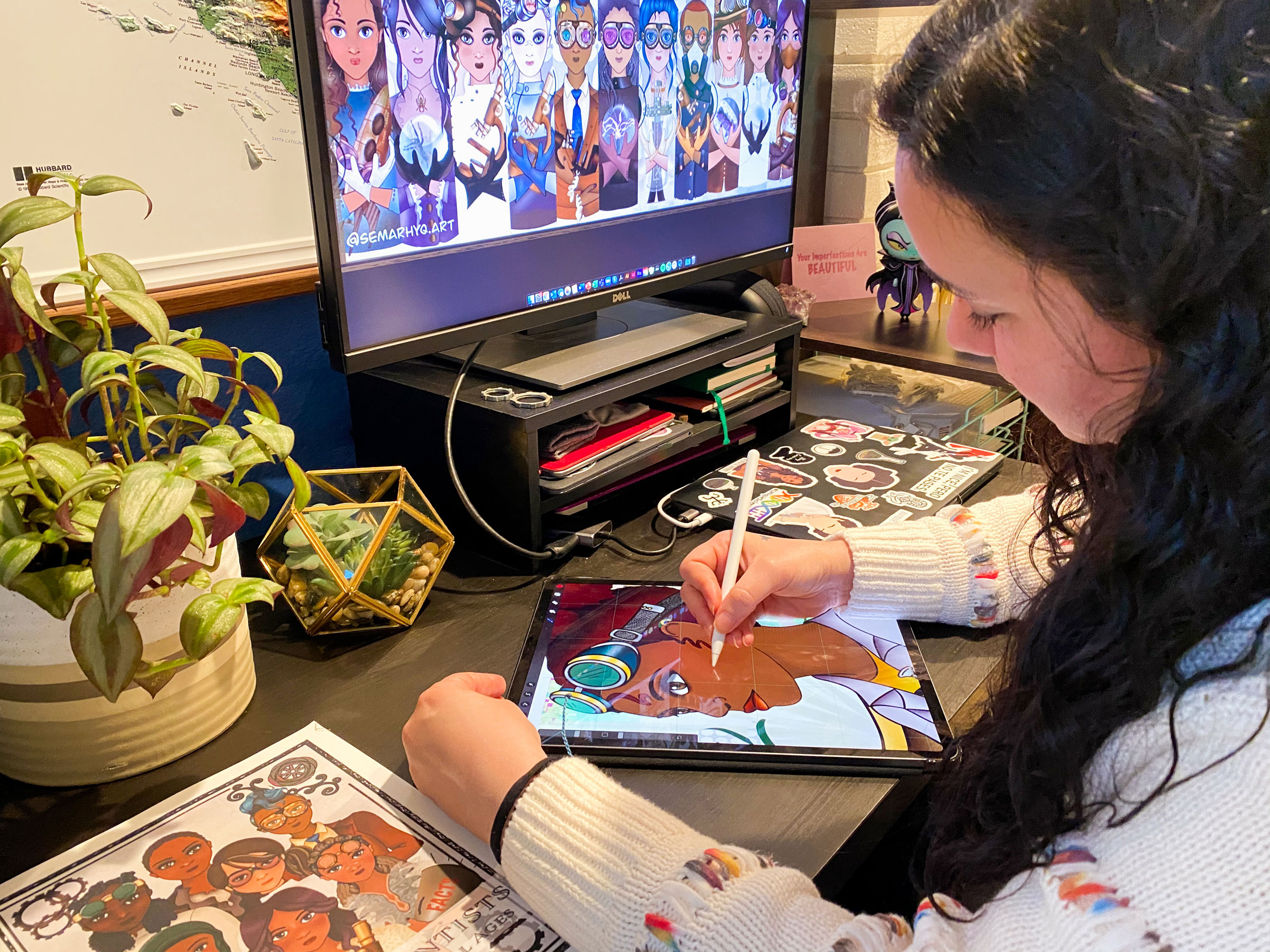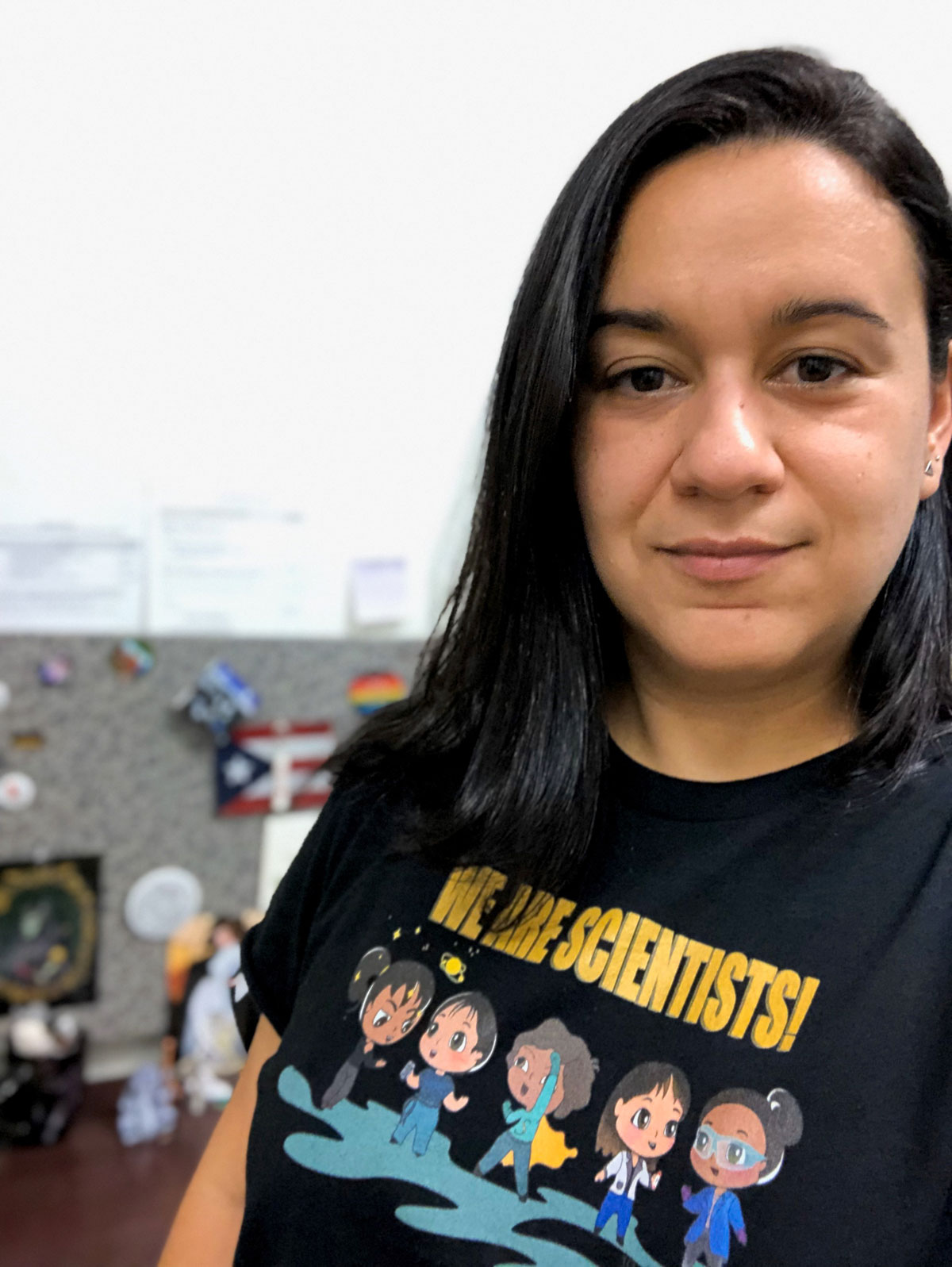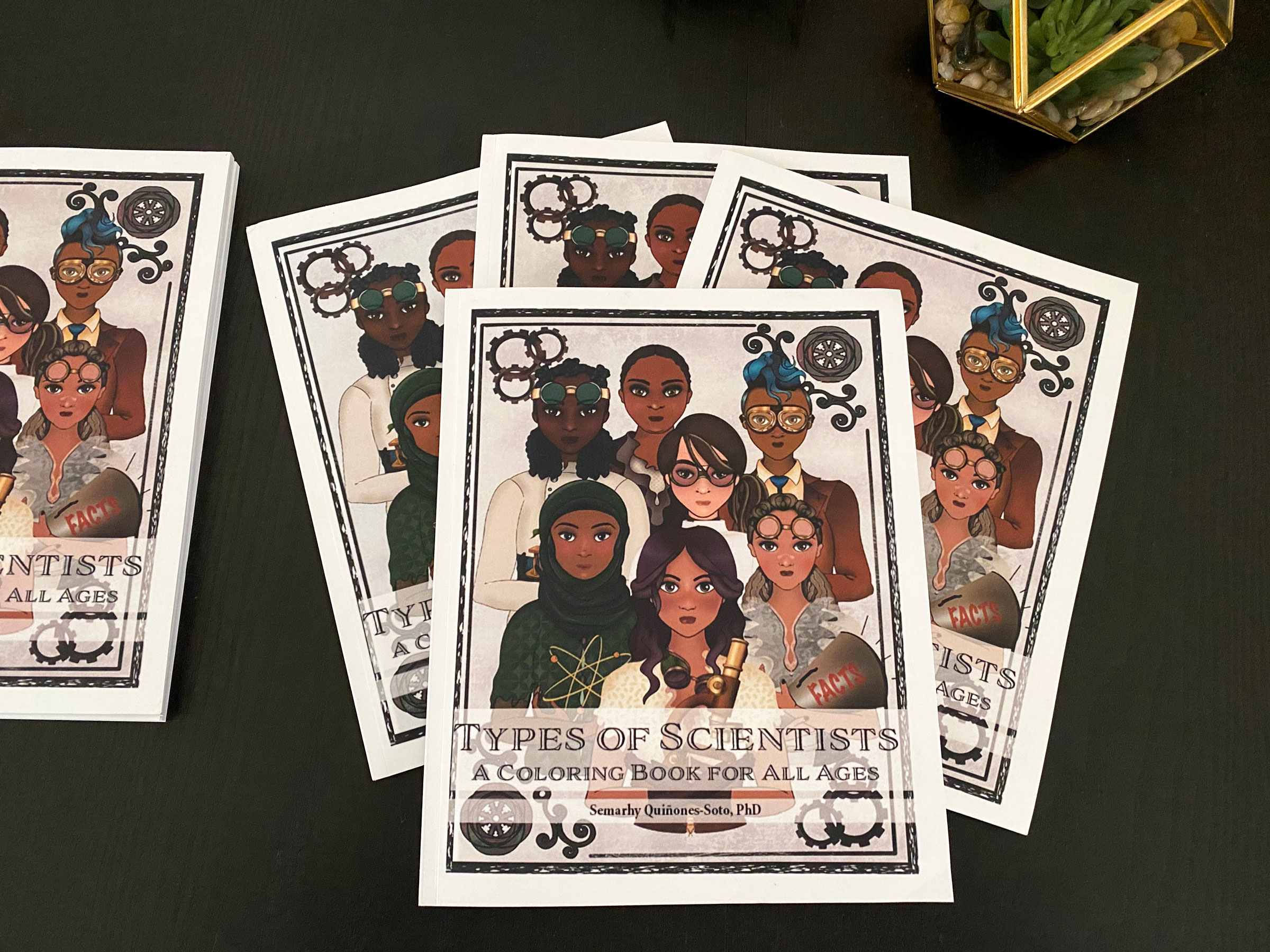
By Cynthia Hubert
Semarhy Quinones-Soto grew up watching her mother mix chemicals, peer into microscopes, and prepare slides for microbiology students at the University of Puerto Rico, Humacao.
The hours she spent in her mother’s lab after school ignited her passion for science, particularly microbiology.
But once Quinones-Soto began her doctoral work in the United States, she noticed a lack of female role models, particularly women of color.
“I wasn’t being heard,” she said. “I was being treated differently just because of my gender.” She started thinking about ways she could help increase the visibility and credibility of women in science.
 Quinones-Soto spent hours in her mother's microbiology lab after school, but saw few female role models once she entered the field herself, inspiring her to create illustrations of women in various science careers. (Courtesy Semarhy Quinones-Soto)
Quinones-Soto spent hours in her mother's microbiology lab after school, but saw few female role models once she entered the field herself, inspiring her to create illustrations of women in various science careers. (Courtesy Semarhy Quinones-Soto)Now a Biology lecturer at Sacramento State, Quinones-Soto is combining her love of art and science to promote gender and ethnic diversity in science, technology, engineering and mathematics fields. She creates digital illustrations depicting women of all colors and ethnicities working in STEM, and incorporates the images into prints, stickers, and other items that she shares on social media and sells online.
The illustrations have gained widespread attention in recent months, most recently appearing in a coloring book Quinones-Soto produced and published that in its first three weeks on Amazon sold more than 250 copies. Her artwork also has been featured on the cover of a neurosciences journal.
Quinones-Soto said she hopes that women will recognize themselves in her images, and that the artwork will inspire young females to pursue careers in STEM.
“For me, it is important to represent women in STEM because you cannot be what you cannot see,” she said. “I’ve always loved to draw, but now I am drawing with a purpose.”
Although more women are pursuing careers in science, they remain underrepresented. According to the National Science Foundation, Black women represent 12.2% of the female population in the United States, but hold only 4.2% of science doctorates. Latinx women represent 13.7% of females in the U.S. population, but hold just 5.8% of doctoral degrees in science.
When Quinones-Soto showed Sac State Biology Professor Enid Gonzalez-Orta some of her first images portraying women in STEM, “I was so moved and impressed that I knew she had to share them with the world,” the professor said.
“It has been amazing to see meaningful impact of her work on other women in STEM, particularly underrepresented women,” said Gonzalez-Orta, director of Sac State’s Science Educational Equity Program. “One of the things that always makes me smile is when I see students displaying stickers with her art on them on their water bottles and computers.”
The coloring book has taken the project to a new level, as STEM scholars and faculty members and aspiring scientists share their excitement on social media.
The front cover of the publication, Types of Scientists: A Coloring Book for All Ages, features digital art images of women of various ethnicities and cultures as well as laboratory symbols and tools. Quinones-Soto dedicates the book to “my mom and all women in science.”
In addition to offering images to be colored, the book discusses different scientific fields and offers information about jobs and careers for current and future scientists. During its first two weeks on Amazon, it was listed as the company’s No. 1 new release in the Science and Technology Teaching Materials category.
Quinones-Soto’s images also are featured on the cover of the latest issue of the Journal of Neuroscience Research.
 Quinones-Soto's coloring book, Types of Scientists, also discusses different scientific fields and during its first two weeks on Amazon was listed as the No. 1 new release in the Science and Technology Teaching Materials category. (Courtesy Semarhy Quinones-Soto)
Quinones-Soto's coloring book, Types of Scientists, also discusses different scientific fields and during its first two weeks on Amazon was listed as the No. 1 new release in the Science and Technology Teaching Materials category. (Courtesy Semarhy Quinones-Soto)The artwork and its underlying message about inclusivity in science has prompted social media responses from across the United States and as far away as Germany and Australia.
“People are contacting me with the most amazing comments,” said Quinones-Soto. “They are saying, ‘This is the first time I’ve ever seen anything that looks remotely like me.’ They send me messages out of nowhere, and it makes me cry.”
Quinones-Soto said the project has given her “a sense of belonging that I didn’t get in science alone. It’s opened up a world where I never knew I belonged. It’s given me a sense of purpose and the ability to make a difference.”
Gonzalez-Orta welcomes the messages she is sending.
They “have brought such great joy and inspiration to so many women and underrepresented persons in STEM, regardless of age, in a profound way,” she said.
“Semarhy’s work is what the scientific community needs to lift up and inspire underrepresented people to pursue and continue their work in STEM during such a critical time in our society.”
To view Quinones-Soto’s images of women in science, go to www.instagram.com/semarhyq.art.